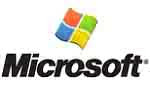 When Sony released it’s very first digital audio portable players (DAP) the only supported format was ATRAC and then ATRAC3, after miserable sales, Sony finally decided to support MP3 but that was many years too late. ATRAC3 is a superior audio format, allowing for lower bit-rates but still maintaining the same audio quality of higher bit-rate MP3 files.
When Sony released it’s very first digital audio portable players (DAP) the only supported format was ATRAC and then ATRAC3, after miserable sales, Sony finally decided to support MP3 but that was many years too late. ATRAC3 is a superior audio format, allowing for lower bit-rates but still maintaining the same audio quality of higher bit-rate MP3 files. ATRAC and ATRAC3 just did not catch on; it may have if their online store took off and if Sonic Stage wasn’t a bug ridden sorry excuse for an application. Sonic Stage isn’t really a media player, it’s a media manager and that’s it, it doesn’t multi-task like iTunes which can manage your photos, music, movies, streaming audio and store purchases. I like multi-tasking applications; I do not like limited programs like Sonic Stage.
For all intents and purposes, Sonic Stage and ATRAC3 were a failure. The one complaint about Sony’s digital audio products is they never supported drag and drop file transfers but that is about to change according to Thomas Ricker of Engadget and ATRACLife.
Sony is preparing to release a new MP3 player that does away with both Sonic Stage and ATRAC support. All I can say is “about time.” The B100 series of players will be available in 1GB to 4GB capacities with or without FM tuners and have small OLED displays. Supported formats include non-DRM WMA, AAC and MP3. Sonic Stage will not be required for file transfers; it’s fully drag and drop compliant. If you have a large collection of ATRAC files then well, don’t buy this model, I’m not going to feel bad for you.
The reason the AAC format took off in Apple’s iTunes store is because well, it works and Sony’s… didn’t. That’s just how it is. AAC is superior to MP3 but not to ATRAC3 it’s really a shame because I do like how ATRAC3 files sound but I’m certainly glad I didn’t convert my library.
I’d probably take a B100 over an iPod Shuffle just to get the advantage of a display. It’s too bad iTunes only works with iPods, it’d be awesome if any player could be used with iTunes, really awesome.
With a little luck all of Sony’s future products in the DAP line will also do without ATRAC and Sonic Stage support.






